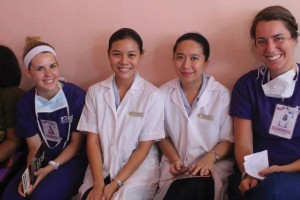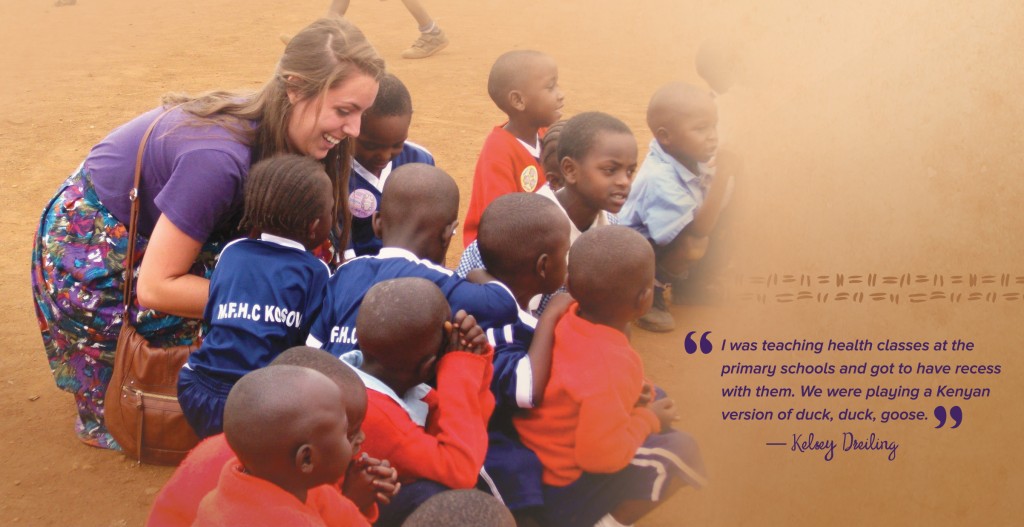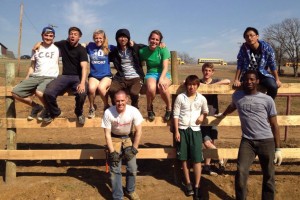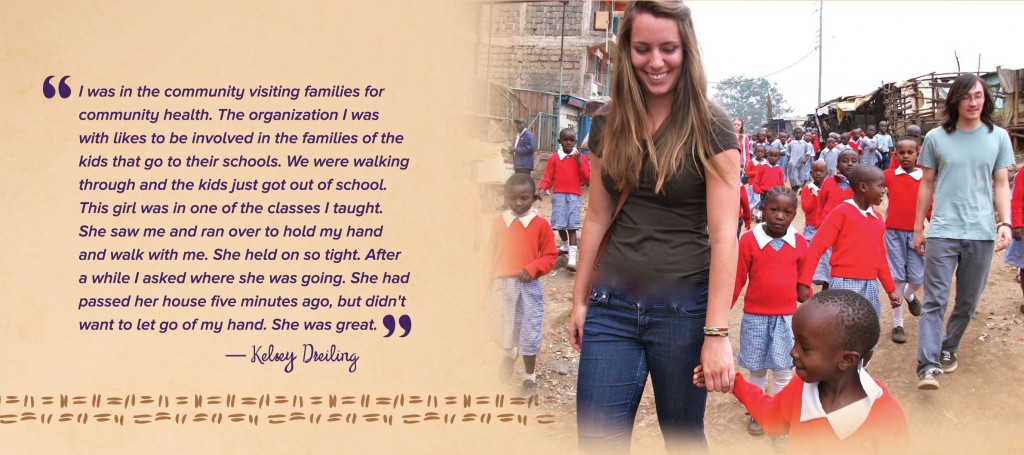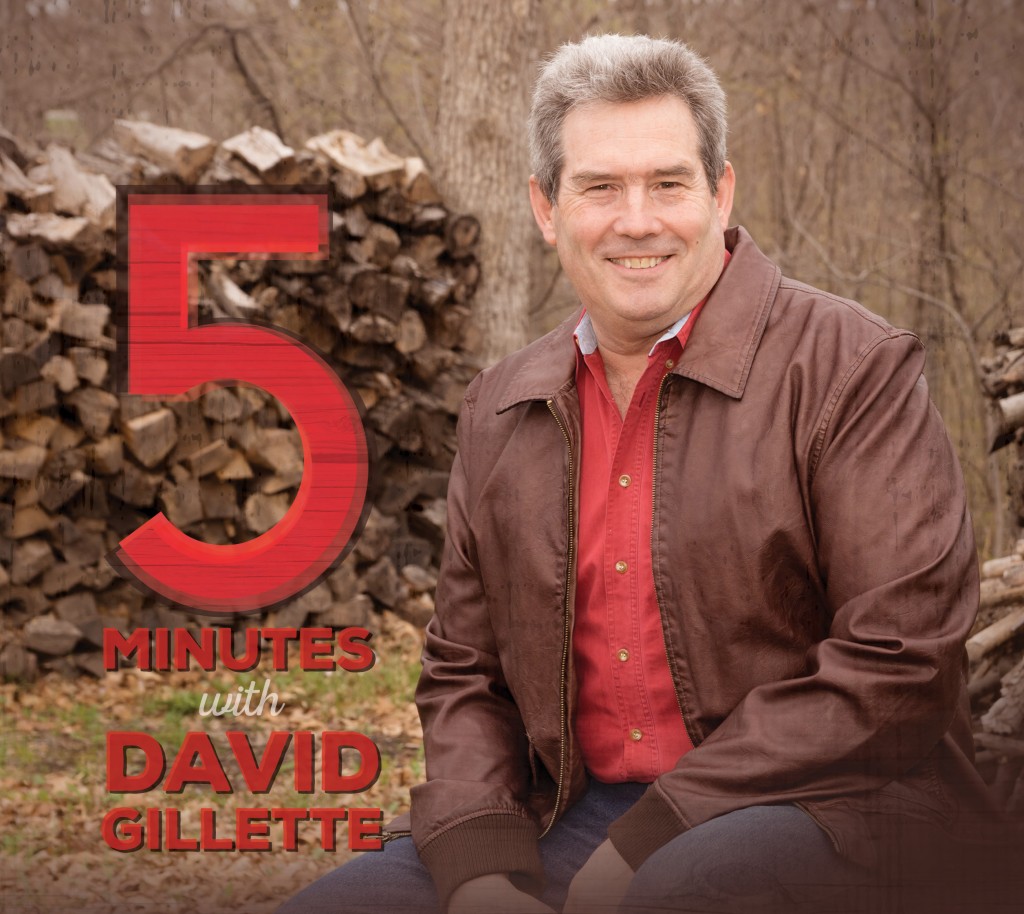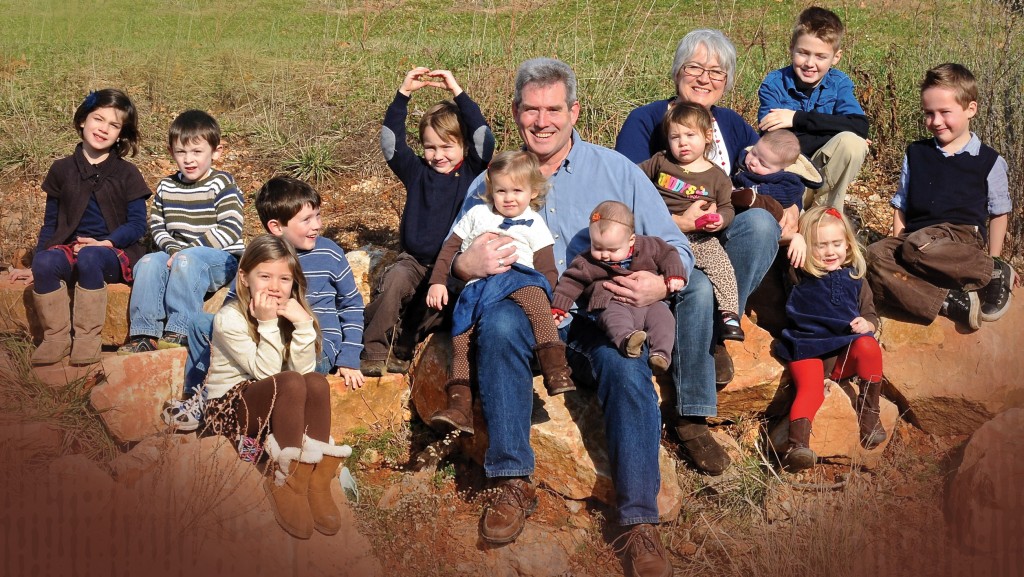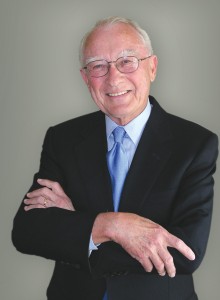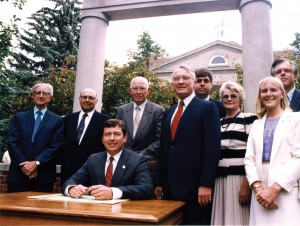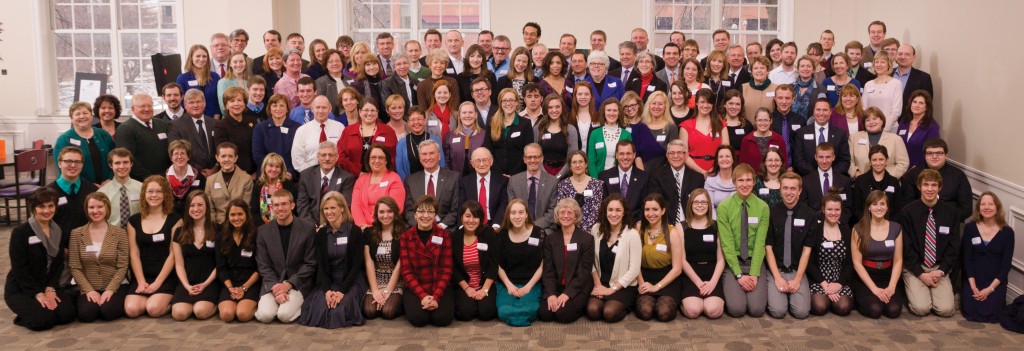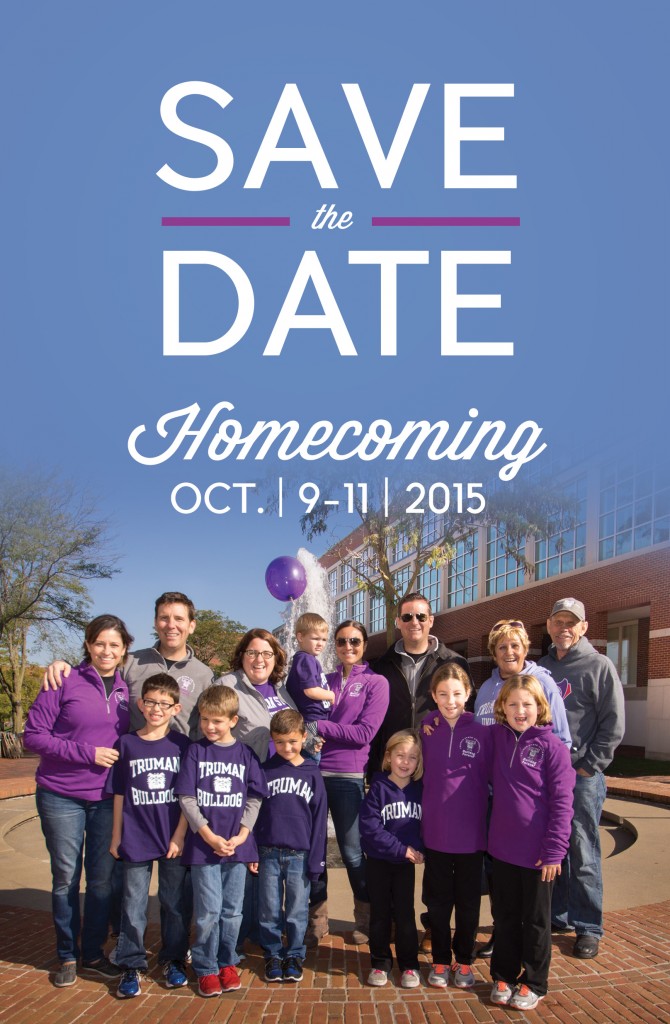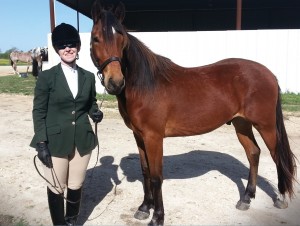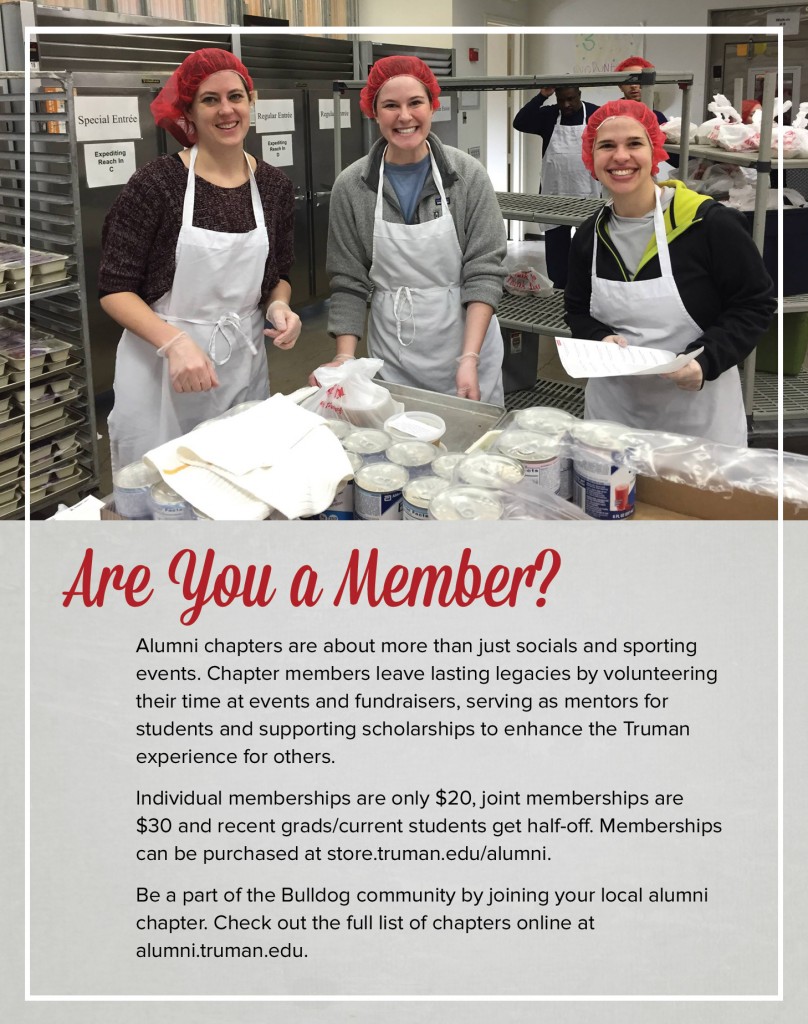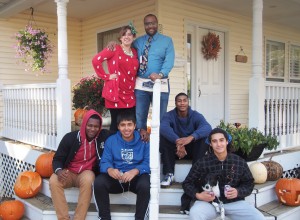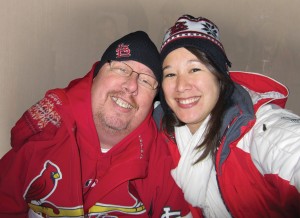
Kanna (Taylor) Rook attended Game 2 of the 2011 World Series in St. Louis with her father Bob.
Kanna (Taylor) Rook left Truman with more than a degree.
“My service-oriented activities at Truman greatly helped me to become who I am today,” she said.
During her time on campus, Rook (’09) was active in several organizations and spearheaded service events through Phi Sigma Pi and Lambda Pi Eta. Some of the dozen or so that she planned as a student included raising awareness for a group that helps abused children in Africa, and organizing a supply drive for the Adair County Humane Society.
While those accomplishments are admirable, it took unfortunate family news to truly unleash Rook’s passion for serving others. Her father, Bob Taylor, was diagnosed with brain cancer in August 2010. Despite having no previous firsthand exposure to the disease, Rook immediately jumped into action. She made use of her experience as a public communication major and volunteered as the public relations/marketing chair for her local Relay For Life event.
The signature event for the American Cancer Society, Relay For Life is the largest fundraising effort in the world. In a typical event, organized teams camp out around a track and take turns walking throughout the night. Games and activities provide entertainment and the entire event strives to build a family-friendly atmosphere in the community. Last year, more than 6,000 events brought in $400 million to the ACS.
“It touches each individual participant in an intimate, emotional and inspiring way,” Rook said. “It gives those who have won the battle against cancer, or those who have lost someone they love to cancer, a way to fight back against this terrible disease.”
In support of her father, Rook had her own Relay For Life team in place by the summer of 2011, and has personally participated every year since his diagnosis. In four years, her team has raised nearly $25,000. Unfortunately, her father has not been there for each of the events. Bob passed away in December 2011, but Rook continues to field a team each year.
Instead of being angry and disheartened at losing her father, Rook has turned tragedy into her calling. In 2012, she took a community manager position with the ACS and now oversees Relay For Life events in five counties. Working out of her home in O’Fallon, Mo., the job entails odd hours, a tremendous amount of travel and countless meetings with individuals in each community she serves, but Rook is able to find happiness in what she does.
“I have met so many incredible people through my job, both survivors and caregivers alike, who have won and lost, and they are all inspiring in their own way. It’s extremely motivating and rewarding,” she said.
All of her hard work has paid off, especially for the ACS. As a community manager, in 2014, Rook was responsible for helping raise more than $325,000 through the five Relay For Life events she coordinated. Including participating with her own team in St. Charles, Mo., and covering an extra event as a community manager, she had a hand in seven Relays last year, which brought her total to roughly $368,000 raised for the American Cancer Society in 2014.
Some of Rook’s most important contributions cannot be measured in dollars alone. Her personal loss is something she uses to connect with and help others.
“I can instantly relate to so many of my volunteers for that reason,” she said. “They reach out to me, not only because I work for the American Cancer Society, but because they know of my personal experience of going through it with my dad.”
This July will mark the fifth year in a row Rook’s team, Bobby’s Big Shots, will take to the track in the St. Charles Relay For Life in honor of her father.
“I do it all in honor of him, and to remember him,” Rook said. “There is nothing more satisfying than getting not only all of my friends and family together, but his friends as well, to celebrate his life and remember the hard battle he lost. He was my motivation when I started Relaying four years ago, and he is still my motivation now.”

